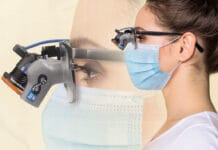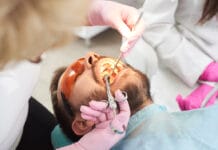I entered my first job in the dental field, a front desk position, with no prior dental experience. I was anxious, shy, and eager to learn. Almost daily my dentist would say, “You need to educate yourself!” It was irritating to hear at times, but I have since realized the value of that statement and the unassuming mentorship I was given in those first years of my career. That dentist and staff invested countless hours teaching me with patience, expanding my clerical and clinical skills with useful feedback, all while supporting my ambitions to eventually leave them for dental hygiene school. Observing them taught me crucial lessons in social interaction, teamwork, standards of patient care, and set the foundation for how I still conduct myself fifteen years later as a dental hygienist.
As I set out to interview some of my own mentors in dental hygiene for this article, much of the feedback surprisingly included unfortunate experiences that sadly almost drove some of these amazing people from our profession entirely. It is worth recognizing dental hygiene can be a busy, stressful, and sometimes a competitive environment to work in. Whether you are a newly graduated dental hygienist or starting a new office after twenty years, we all thrive with encouraging support rather than judgmental bullying. See your co-hygienists as an opportunity to teach or learn and as a team member, not an adversary.
Mentoring is a tool dental hygienists’ can use to implement a stronger culture of mutual respect and positivity within our profession. Mentorship is guidance provided by a mentor, usually an experienced person in a certain field or educational institution, and the benefits of these relationships are numerous. Accepting dental hygiene mentorship can provide personal growth and development, positive social support and stress reduction, and career advancement1. Providing mentorship can pass on academic values, practical advice, networking opportunities, and mentors generally gain a sense of accomplishment in their protégé’s achievements.
Being a Dental Hygiene Mentee
Before beginning the search for a mentor, you need to know your goals. You may be seeking new graduate support and interview advice, or transitioning to education, dental sales, dental insurance, or just looking to reignite your clinical passion. Whatever the case may be, be able to articulate your expectations and career development needs. Then, once you have established a relationship with a mentor, be open to their professional advice, be available for introductions and networking, and actively keep in touch with them.
Creating a Mentor-Mentee Relationship
It is important to remember that a person’s needs cannot generally be met by one person and that multiple mentors can be even more beneficial. Mentor-mentee relationships gradually evolve into a friendship based on mutual respect, appreciation, and recognition2. Many hygienists find their first mentors in instructors or classmates during dental hygiene school. A mentor is someone you will have a natural inclination toward, and someone you get along with easily. The most successful mentors have intense confidence in their mentee and promote their strengths and potential2.
Become a Dental Hygiene Mentor
Dental hygienists may mentor in many ways. We know first-hand the educational, physical and mental requirements of our job, and are the best resource for those considering a dental hygiene career. We may also be mentors to co-workers in professional conduct, standards of patient care, and teamwork. A mentor’s role is to provide professional and sometimes personal (if requested) guidance. Honest with feedback, a mentor helps to set realistic goals and helps facilitate career advancement opportunities for their mentee1. A mentor can help to encourage independence, self-confidence, job satisfaction, upward mobility, and decision making and problem-solving skills2.
Mentorship is an invaluable resource for support in clinical practice, career development, and finding opportunities to grow your career. It is also a rewarding way for dental hygienists to guide a promising student or colleague searching for direction on a path you’ve already traveled. Katherine F. Schrubbe, B.S.D.H., M.Ed. wrote, “As the mentoring relationship grows from a directive interaction toward collaboration, transmission of the professional legacy to posterity occurs by empowerment of the protégé.” Consider spreading your passion for dental hygiene through mentorship!
SEE ALSO: Dr. Esther Wilkins and a Century of Change
DON’T MISS: Dental Hygienists and the Business of Dentistry
References
- Bagramian, R. A., Taichman, R. S., McCauley, L., Green, T. G., & Inglehart, M. R. (2011, March 01). Mentoring of Dental and Dental Hygiene Faculty: A Case Study. Retrieved from http://www.jdentaled.org/content/75/3/291
- Schrubbe, K. F. (2004, March). Mentorship: A critical component for professional growth and academic success. Retrieved from https://www.ncbi.nlm.nih.gov/pubmed/15038633









